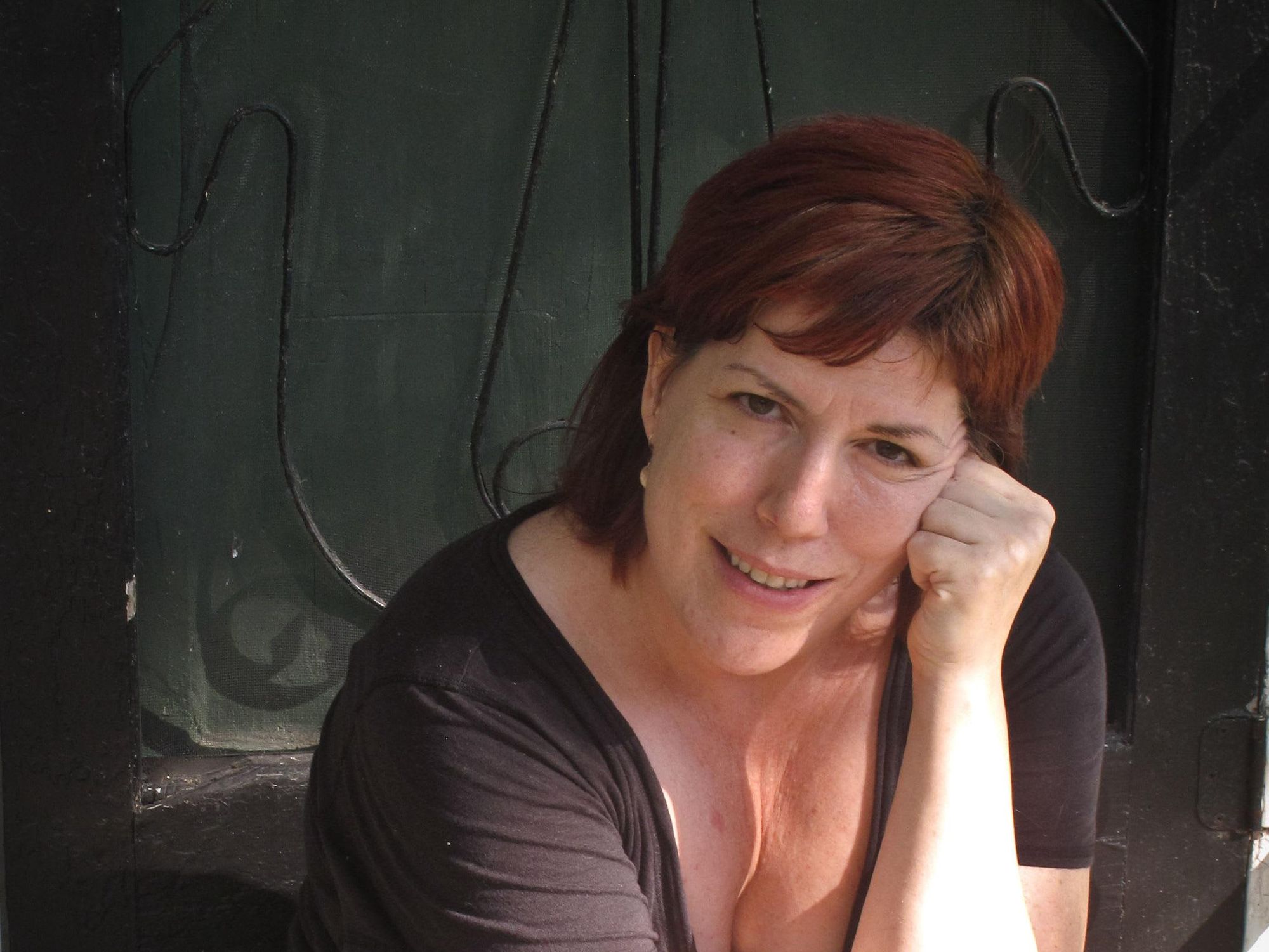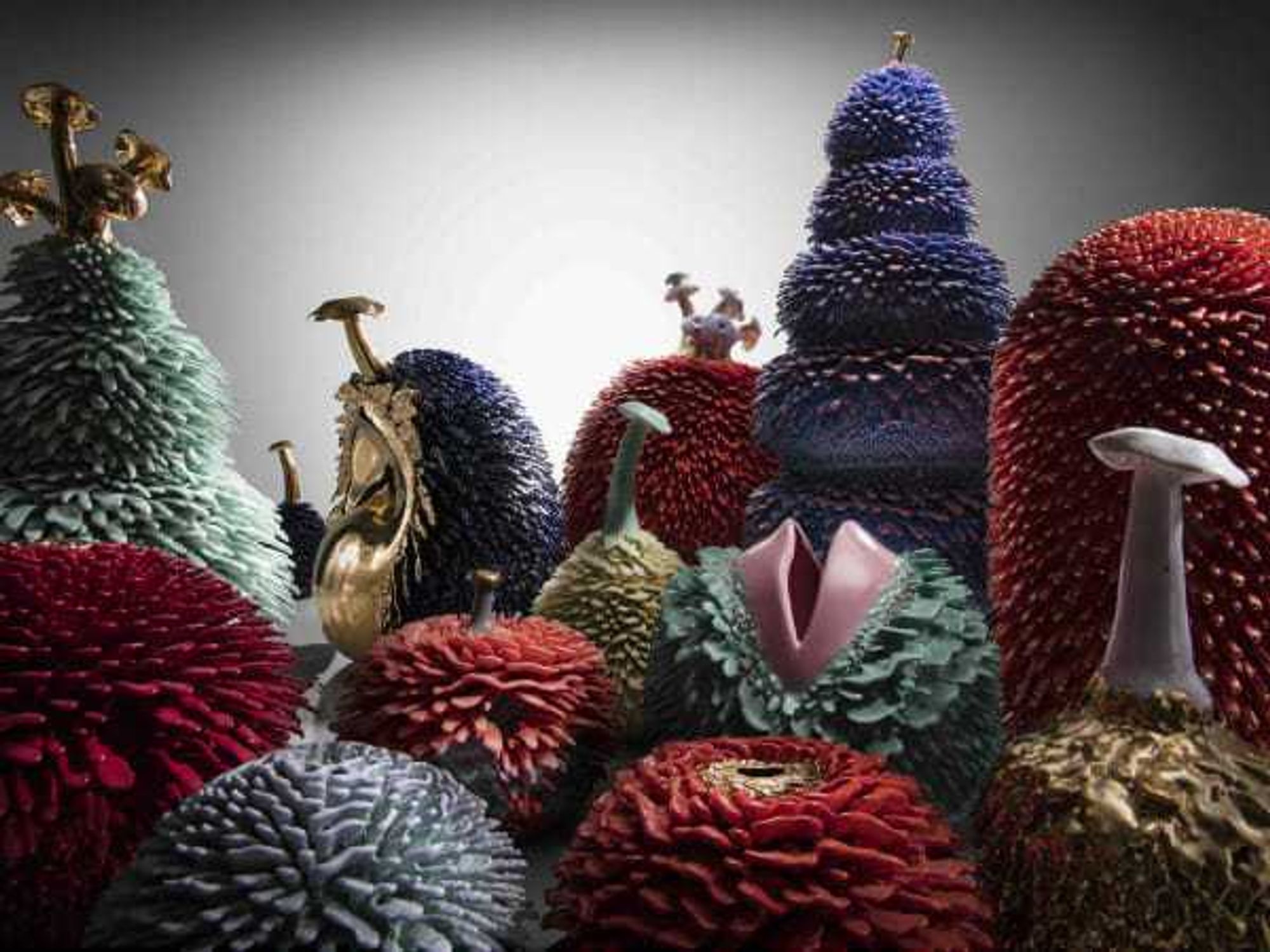Organic Theater
Drawing a Paycheck might not pay the artist's bills but does ask questions common to Austin's creative scene

Dr. Scott Walters, an associate drama professor at the University of North Carolina, recently put forth the idea of an “organic theater.” In his words, this theater would be “a small community of people who sometimes perform, sometimes listen — a sort of ensemble who share their talents with each other in informal spaces... [it] wouldn't create a 'product' to be sold, but rather members would come together to share gifts, alternately giving an receiving.”
Solo performer Annie La Ganga's latest improvised show, Drawing a Paycheck, felt very close to Walters' vision. Two kitchen chairs, which we soon learned were from her kitchen, rested on stage with some drawing tools and a large pad of paper. The lights were basic and the stage was empty, even in comparison to other Frontera shows. There was no fanfare, music or dimming of the stage lights to welcome Annie; she just popped her head around the corner and said, “Hello!”
“Hi!” audience members enthusiastically called back. When La Ganga asked how people were doing, she genuinely meant it, peering past the stage lights to name friends and smile at those she hadn't yet met. The crowd was small but enthusiastic. Many knew each other and La Ganga. From the start, the experience felt more like an informal gathering than Theater with a capital T.
For the next ninety minutes, La Ganga cheerfully led the audience through musings on life, artistic technique and her various creative projects. She was like the fun aunt at the party, if that aunt was close to you in age and had made untold numbers of sugar skulls for Dios de los Muertos a few years back. She said, “My problem is that I'm good at too many things!” and to demonstrate, she invited some of her guests into the limelight with her, to sit still as she sketched their profiles.
The show came to life in these interactive moments and truly became a conversation between the performer and the audience as La Ganga chatted with her model, explained her drawing technique and gave a mini-lecture about Drawing on the Right Side of the Brain. While other performers might give lip service to the idea of audience interaction or only allow it in rigidly structured ways, La Ganga was genuinely interested what gifts others had to share with her. In the program, a short questionnaire asked for crafts you'd like to try and for your worst idea for a business. In this way, she was creating the kind of organic theater that Walters muses about.
A key problem that La Ganga addressed head on is that, despite the lovely audience and the kumbuya spirituality of it all, she still has to make money in her day to day life. Drawing a Paycheck seemed to refer to La Ganga's inability to do so and her struggles — which she shares with many Austin creatives — to make ends meet.
“Let's love money!” she said. “Let's take twenty – no, thirty seconds to just love money.” In the end, an organic theater rooted in the gift economy rather than capitalism sounds wonderful but doesn't offer much of a solution for how to pay the bills. Most local performers work a day job outside of their chosen field and then scrape together the energy after hours to devote to their passion.
In La Ganga's case, that passion presented itself as the kind of lovely, charming evening that a good host can provide. While the show will change from night to night, the invitation to listen and be heard stays the same.
---
Drawing a Paycheck is showing at the Blue Theater Monday, January 30th at 7:30 pm and Thursday, February 2nd at 8:45 pm. Purchase tickets here.
